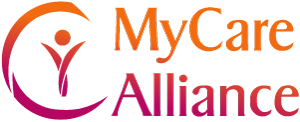There are several steps you can take to lower your chances of overmedication and negative reactions to medicines. Keep the following tips in mind for safe medication use. Always ask your healthcare provider or pharmacist if you have any questions about your medications.
Make a list
Keep a list of all of the medications you take—both non-prescription and prescription. This list should include any and all medications or other supplements you are taking, including prescriptions, over-the-counter medications, herbal remedies, and vitamins. You should also write down the doses, and remember to bring the list with you whenever you see a healthcare professional.
Review your medications regularly
Whenever you see your healthcare provider, make sure to go over your medication list with them, especially after you’ve been hospitalized or treated by another provider. This way, they will know what medications and supplements you are taking. They can also check whether the medications might be causing side effects, or could cause side effects, if taken along with a new medication.
Read all prescription and warning labels carefully. You will find the following information:
- instructions on how to take the medication
- what it should or should not be taken with
- the potential for medication interactions
Look out for Side Effects
Ask what side effects your medications can cause, and watch for them. If you think you may be having a bad reaction to a medication, or if you think a medication is not working, tell your healthcare provider as soon as possible. However, don’t stop taking a medication without first checking with a healthcare professional.
Ask about Over-the-Counter Medications
Over-the-counter medications (OTC) are sold at pharmacies, grocery stores, or discount stores. You can buy these medicines on your own without a doctor’s prescription or direction. However, just because you can buy these medications without a prescription, it doesn’t mean that they have fewer side effects than a prescription medication. Some OTC medications can make your condition worse or they may cause an unwanted reaction with another medicine you may be taking.
Examples of OTC medications include:
- Advil (ibuprofen), an anti-inflammatory pain medicine
- Benadryl (diphenhydramine), an antihistamine for allergies
- Tums (calcium carbonate), which reduces stomach acid
Make sure to ask your healthcare provider what the correct dosage of any OTC medication should be for you, and be careful not to take more than recommended.
Review Medications If You’re Hospitalized
If you are admitted to the hospital, make sure the hospital team knows about all the prescription and OTC medications you’re taking. While in the hospital, the hospital team will be responsible for giving you the medicines you need. Do not take any medications on your own during your hospital stay.
Sometimes, you may be prescribed new medications during your hospitalization. Ask if you need to continue taking them after you have been discharged from the hospital.
Look Out For Inappropriate Medications
Experts from the American Geriatrics Society (AGS) suggest that there are certain medications that may be inappropriate for older adults to take. Therefore, in many cases, older adults should avoid them or use them with caution. Whenever you or an older adult in your care is prescribed a new medication, ask why it’s being prescribed and if it is an appropriate medication for you and your condition.
If a medication you are taking is listed in the AGS Beers Criteria, talk to your healthcare provider. Ask if there might be a safer or more effective alternative. Keep in mind that if a medication you take is on the AGS Beers Criteria, it still may be a reasonable choice for you. The way you respond to a medication or medications can differ from the way other people respond to it. Medications included in the AGS Beers Criteria are “potentially inappropriate,” but can be reasonable choices for some older adults.
Take Your Medication Properly
As many as 50% of older adults may not follow their healthcare provider’s recommendations about how to take their medication properly.
For older adults, difficulties taking medications include:
- Difficulty reading and understanding directions on labels. The print may be too small and directions may be unclear.
- Trouble opening medicine containers, pouring medications, or even filling a glass of water.
- Healthcare providers not providing enough information about the importance of taking medications properly. It is especially important for medications used to treat conditions with no obvious symptoms, such as high blood pressure or diabetes. Older adults may also need reassurance about the safety and possible side effects of certain medicines. This is especially the case for newly prescribed medications or those associated with serious side effects, such as anticoagulants.
Some older adults may worry about telling their healthcare provider that they are not taking medications properly or following directions. There are many possible reasons for this. Some older adults may be unable to afford their medications. Others may not understand or remember how often to take their medications or how much to take.
If you have trouble taking your medication, or care for an older adult who has difficulties, discuss it with your healthcare provider. Your healthcare provider is likely to have easy-to-follow solutions for many of these medication challenges.
Last Updated January 2019

